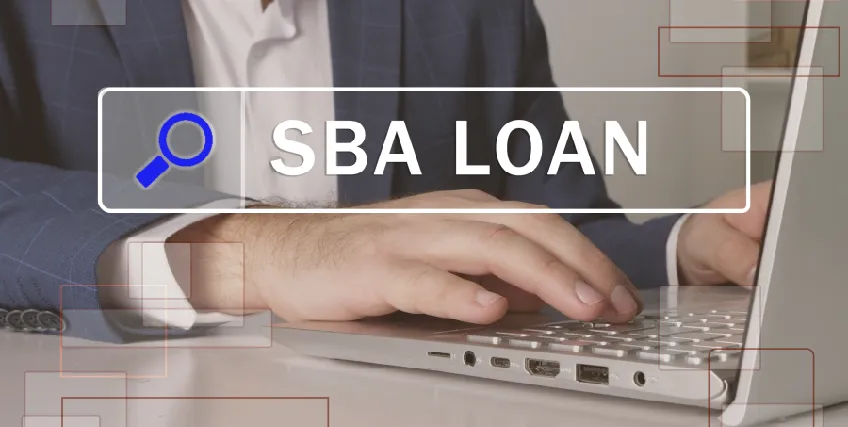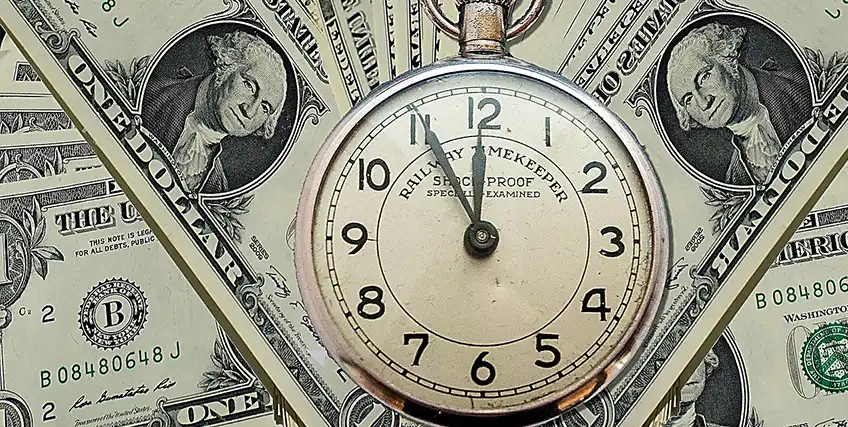Ways to Get a Business Loan for Opening a Franchise
October 03, 2025 | Last Updated on: October 03, 2025

In this article we cover:
- Franchise Loans from Online Lenders
- SBA 7(a) Loans
- SBA 504 Loans
- Franchisor Financing Assistance
- Crowdfunding
- Traditional Loans
Opening a franchise allows you to operate a business with a proven model, an established brand that resonates with consumers, and receive support from the franchisor to help you succeed. However, the infrastructure and support do not come free as opening and operating a franchise requires paying the franchisor several fees (some are up-front and some are ongoing). For example, an initial fee, royalty fees, advertising & marketing fees, technology fees, etc. The initial fee, start-up costs, and ongoing costs can be quite substantial depending on the franchise and most will require getting a business loan. Let’s explore six ways to get a business loan for opening a franchise.
Understanding Franchise Costs
Prospective franchisees have a lot of financing options. Before diving into your financing options, let’s first detail the expenses you can expect to incur when starting a franchise. As a franchise owner, there are many costs you will be required to cover, including but not limited to: franchise fees, office space, equipment/supplies, advertising and marketing, utilities, inventory, insurance, market research, licenses and permits, employee salaries are more. Just like any start-up business, there are a lot of expenses with owning and operating a franchise.
Each franchise will have different expenses. It’s important to understand the expenses and your risk appetite when selecting a franchise that works for your situation. Each franchise will provide a Franchise Disclosure Document (FDD) or something similar. The FDD is a document that a franchisor is legally required to present to the franchisee before you sign the franchise agreement. The FDD outlines the costs of owning and running a franchise. The FDD might also provide revenue projections which will help you with planning.
Once you have a clear understanding of your expenses you can then select the financing option that best works for you. Whichever financing option you choose to pursue, you will work with the lender to determine what type of credit risk you are. The lender will need to understand your business plan and creditworthiness, including your credit report and credit score, your ability to repay the loan, and your ability, skills, and experience in the business or industry to give the lender confidence that you can operate the business efficiently and professionally.
Next, we will take a look at six franchise financing options.
Franchise Loans from Online Lenders
online lender like Biz2Credit can help entrepreneurs get business financing and franchise loans with a fast approval process. The main benefit of using an online lender is they are very experienced in dealing with small business owners looking to start a new franchise. You can talk to a live person who can walk you through your small business loan options and answer common questions.
There are many online lenders and funding options available so you will need to do your research to find the one that works for you in terms of loan rates, pay-back period, etc.
Online lenders also offer other products like working capital loans and term loans. Both options are better if you are an existing franchise operator with business history. A working capital loan can help you with operating your franchise. For example, the daily and monthly expenses keep your franchise open. A term loan can be used for a broad range of business expenses. For example, if you are looking to open a second, or third, etc., franchise in a new location.
SBA 7(a) Loans
The U.S. Small Business Administration (SBA) offers the 7(a) loan. The SBA 7(a) loan is the most common loan program and includes financial help for businesses. This is a great choice if real estate is part of your franchise purchase. The SBA 7(a) loan can be used for short-term or long-term working capital, refinance current business debt, and purchase furniture, fixtures, and supplies.
The most money you can receive with a 7(a) loan is $5 million. There are several eligibility factors based on what the franchise does to earn revenue, its creditworthiness, and where the franchise operates.
SBA 504 Loans
The SBA also offers 504 loans for long-term, fixed-rate financing of up to $5 million for major fixed assets (for certain energy projects, you can receive a 504 loan for up to $5.5 million, see the SBA’s website for additional details). The 504 Loan offers long-term, fixed-rate financing for major fixed assets that support business growth and create jobs.
The SBA works with Certified Development Companies (CDCs) to issue 504 loans. The CDCs are local partners who are certified and regulated by the SBA and promote economic development in their local communities.
504 loans are best used for existing buildings or land, new facilities, long-term machinery, and equipment, or the improvement or modernization of land, streets, utilities, parking lots, landscaping, and existing facilities.
Additional Considerations for using SBA Loans for Operating a Franchise
Use the SBA Franchise Directory to determine if the franchise you are considering opening will work with an SBA loan. The SBA franchise directly is a list of all the franchises reviewed by the SBA that are eligible for SBA financial assistance and are eligible under the SBA's affiliation rules and other eligibility criteria. There is no need to hunt around the internet to determine if the franchise you’re interested in will work with SBA loans.
The SBA has also put together a guide called Buy an existing business or franchise. The guide is broken out into three sections: Know the difference between franchising and buying a business, Consider three factors before franchising or buying a business, and Get ready to buy your franchise or business. Each section provides valuable information to those considering opening a franchise. If you are considering an SBA loan for your franchise, reviewing this guide is a must.
For more information on the SBA application process, and what a borrower needs to do to prepare for their SBA application, please refer to our SBA loans program.
Franchisor Financing Assistance
There are a lot of factors to determine which franchise is right for you. For some, franchises that offer financing and special assistance make sense because you can sometimes get your franchise off the ground and only have to pay a fraction of the initial fees upfront.
Certain franchises offer franchisees different types of financing options. To create a strong partnership, they can offer reduced fees or eliminate fees, offer direct financing, or offer a special financing arrangement with a pre-determined lender to franchisees to get loans.
For example, to open a Chem-Dry Carpet Cleaning franchise, a franchisee can plan on a total investment in the range of $69,145 to $204,714. However, with Chem-Dry’s special internal financing, a franchisee can get started on their own carpet cleaning business for less than $15,000 down. This is a huge benefit that can’t be understated.
Not all franchisors provide funding or special financing options. Unfortunately, there is no universal rule, and each individual franchise is different. You will need to do your research and review franchisor websites to see if it offers funding or financing for franchisees. You can also reach out to the franchise directly for more information.
Crowdfunding
Crowdfunding can come in two forms: friends and family, or using a crowdfunding platform like GoFundMe. You will need to make a judgment call to determine if asking friends and family for money for your franchise is worth it. However, friends and family members with the means to invest in your business will likely ask to hear about the franchise and how you plan on paying them back. If you get someone to offer you a loan, consider drafting a loan document that specifies the details and terms of the financing to separate your relationship from your business deal.
Crowdfunding platforms like GoFundMe have become popular in recent years. Those with a gift for communication and with strong social media skills might be able to use a platform to raise money for their franchise. However, these platforms typically offer incentives for people to invest. In other words, why should people invest in you? What is in it for them? A crowdfunding page is easy to set up, and if you can communicate your interest in raising money for your franchise in your fundraiser description, you may be able to generate support from people all over the world.
Traditional Loans
Traditional financial institutions like banks and credit unions offer loan options for franchise businesses. Loans are likely to have interest rates and repayment terms that are on par with other funding sources.
However, they might be difficult to qualify for if you are a new business, do not have a credit history, have poor credit, have no or low cash flow, or have a highly unusual situation like you can’t produce tax returns. The bank or credit union will want to understand your personal credit and net worth to determine the type of loan they can offer you. You may also need to put up collateral, like personal assets, to secure your financing.
Typically banks and credit unions will require you to have excellent credit, strong finances, and several years of business experience to get a franchise loan. The loan application process is typically longer too. As stated above, this might not be a good option if you’re just starting. However, if you’re a seasoned franchise operator, bank loans might be a good path to get a loan to open another franchise.
Can you use a business line of credit for opening a franchise?
A business line of credit is a good idea to help you operate your franchise once it is already open. Even if there is no immediate need for capital, opening a business line of credit allows you to confidently navigate the uncertainties of operating a franchise. For example, using a line of credit helps for covering purchases you can’t put on a credit card or that might exceed your spending limit on a credit card, or if you have a large, unexpected expense and are tight on cash.
One strategy to consider is to use a business loan for opening a franchise, and then once you’re operating well and have a strong credit history, open the line of credit to support ongoing costs. With franchises, a line of credit can help to be opportunistic. For example, if you have the chance to buy another existing franchise in a new location where the owner wants out.
Getting Started
There are many ways to get a business loan for opening a franchise and Biz2Credit is a great place to start. Our helpful staff will provide you with exceptional customer service and will work hard to understand the needs of your franchise business, the intended uses for your loan, and the best terms that can be offered. Get in touch today to find our franchise financing that can help you.
FAQs
Can I get a business loan to open a franchise?
The Small Business Association (SBA) permits investors to borrow up to $5 million to open a franchise or small business. Other lenders can have diverse limits, relying upon the individual's credit history and business plan.
What are the financial requirements to open a franchise?
Following are some of the franchise requirements that you must consider:
- Credit score: Minimum credit scores can depend on the franchisor, but a score of 680 or higher is usually ideal.
- Net worth
- Available cash
- Prior experience in the industry
- Management experience
- The total investment needed
- Ongoing costs
What is an SBA approved franchise?
Being listed as an SBA-approved franchise doesn't mean the SBA endorses the business. It indicates that the SBA has reviewed the franchise's disclosure documents and found them suitable for SBA-backed financing. The term 'approved' can be misinterpreted.
How do I get enough money to buy a franchise?
To start a franchise, you can explore various funding options:
- Personal Savings: Use your funds
- Loans: Consider personal loans, bank loans, home equity loans, lines of credit, signature loans, or equipment leasing
- Investments: Seek equity funding from investors or angel investors
- Asset-Based Financing: Leverage assets like pensions or securities
- Credit Cards: Use credit cards, but be mindful of interest rates and fees
How do people get funding to start a franchise?
Franchise finance sources include banks, SBA-approved lenders, online lenders, franchisors, and personal resources like 401(k) retirement accounts.




